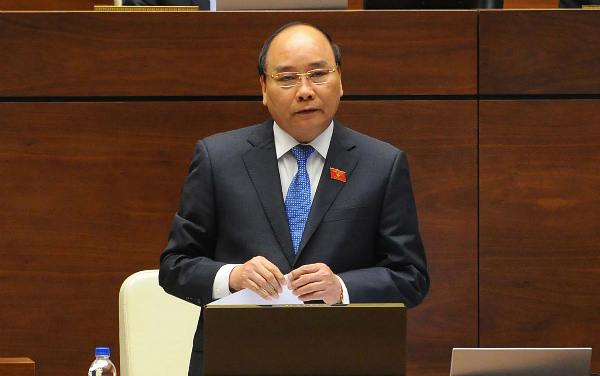'But without joining TPP Vietnam will still continue to further the economic integration.'

Vietnam will shelve ratification of a U.S.-led Pacific trade accord due to political changes ahead in the United States, but wants to maintain good relations with Washington as much as it does all other countries, its prime minister said on Thursday.
Vietnam's legislature was almost certain to ratify the 12-nation Trans-Pacific Partnership (TPP) agreed last year but had deferred it until after the U.S. presidential election won by Republican Donald Trump, whose protectionist agenda on the campaign trail has unnerved Asian economies.
The TPP, the signature economic policy of President Barack Obama's Asia-Pacific rebalance, looks increasingly uncertain with a Republican Congress and an incoming president who had called the agreement a "disaster".
The TPP would be a big boon for Vietnam's exports and manufacturing economy, which is receiving record foreign investment due to its numerous trade accords, cheap labour and relative stability.
"The United States has announced it suspends the submission of TPP to the parliament so there are not sufficient conditions for Vietnam to submit its proposal for ratification," Prime Minister Nguyen Xuan Phuc told the National Assembly.
Post-U.S. election responses by the Asian countries on the TPP varied, from suggestions by Malaysia that it would focus efforts on wrapping up a multi-nation trade pact led by China, and Japan trying to stick with the TPP and push ratification.
According to TPP's statutes, it can only be adopted if the United States is part of it, given its economy represents about two thirds of the combined GDP of the original 12 members.
The TPP was a major factor in the rapid strengthening of ties between former war enemies Vietnam and the United States. The relationship has gained momentum over the past two years, coinciding with fissures between Hanoi and neighbor Beijing over troubles in the disputed South China Sea, which Vietnam calls the East Sea.
But that has complicated the balancing act that Vietnam's Communist Party has for years carefully managed as it seeks to expand its economy and build alliances while not becoming too dependent on one country for security, trade or investment.
Phuc said that with or without the TPP, Vietnam was committed to further opening up its economy to the world. Earlier on Thursday he raised his forecast of Vietnam's annual export growth this year to 8 percent.
"We already have signed 12 free trade agreements, so joining the TPP is good, but without joining TPP we will still continue to further the economic integration under programs we have joined," he said.
His comments echoed those last week by the country's trade minister, who said the textiles, seafood and footwear sectors would still stay competitive on global markets without the TPP.
Phuc said relations with the U.S. administration would remain strong, but he emphasized how Vietnam was committed to sticking by its longstanding foreign policy.
"The party, the state are implementing a policy aimed at diversification and multilateral ties, considering all countries as friends," he said.
"We are ready to cooperate with the United States for co-development on the principle of respecting independence, territorial sovereignty, causing no harms to each other. In that spirit, I believe the Vietnam-U.S. ties will be better in the coming time."
Reuters/Ho Binh Minh






